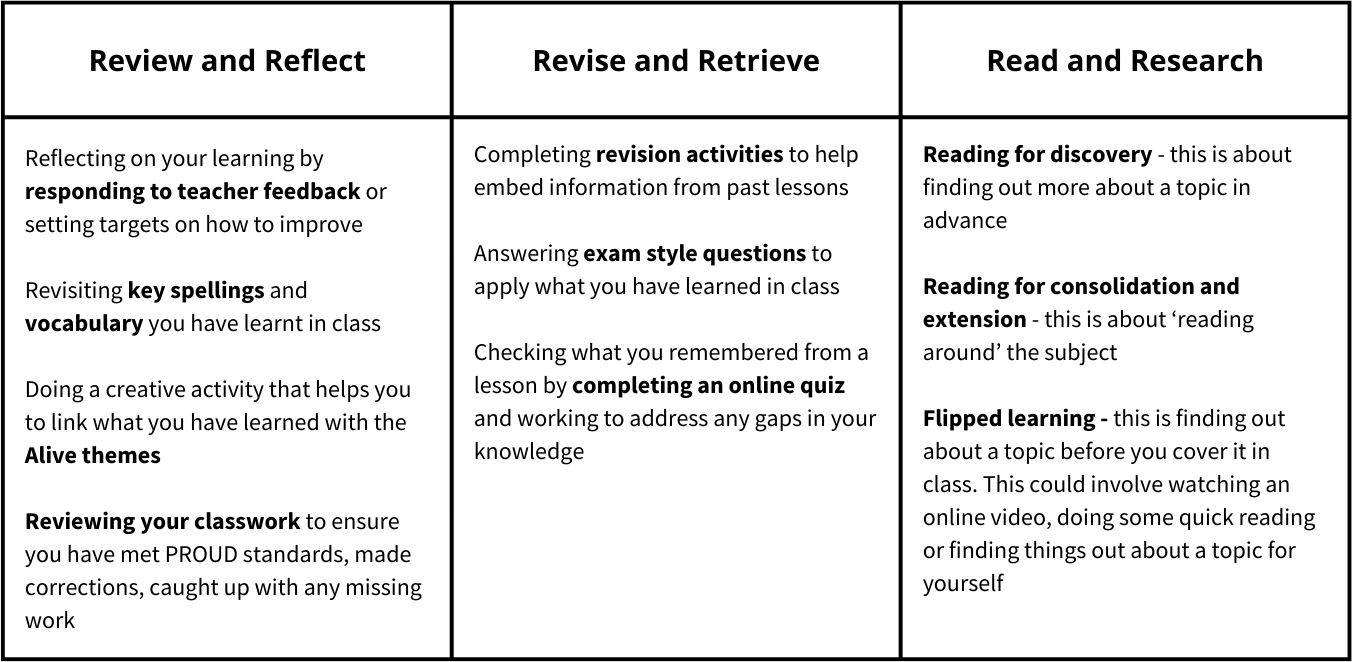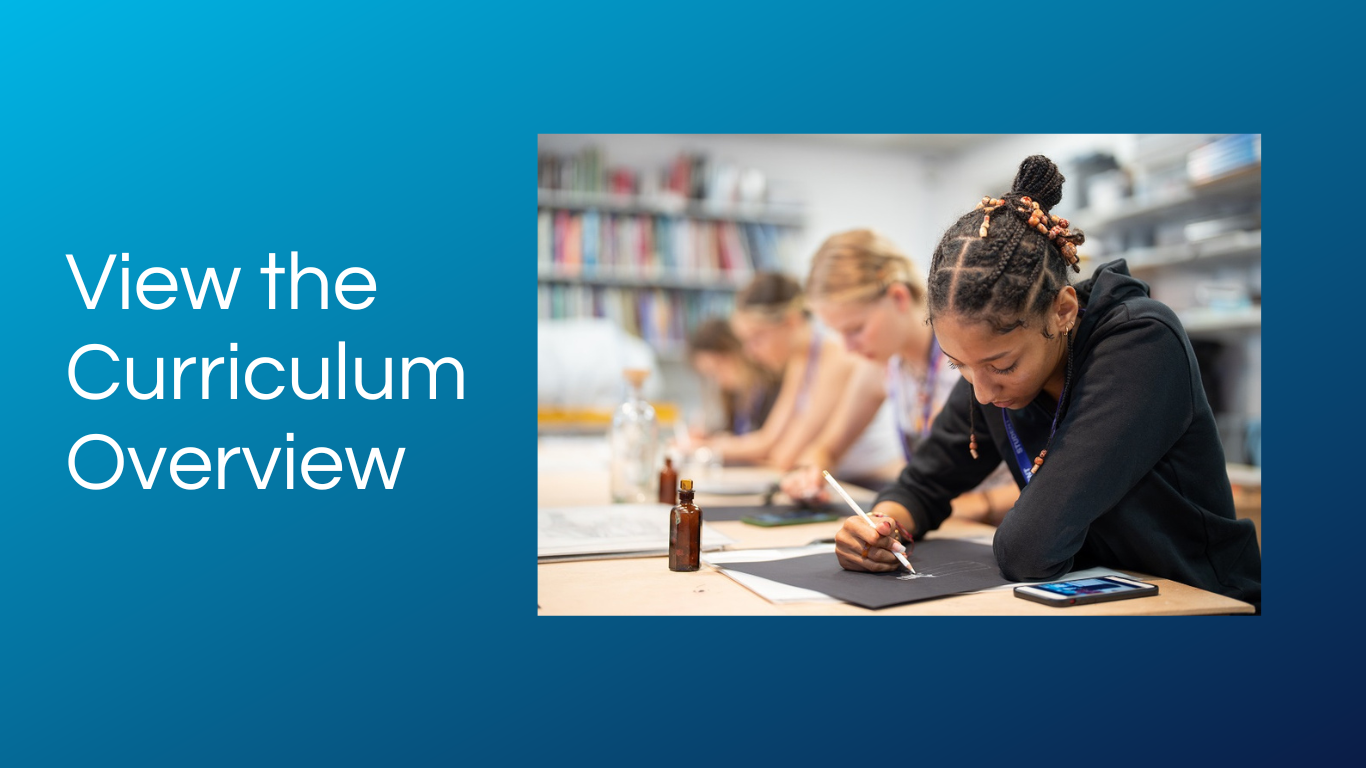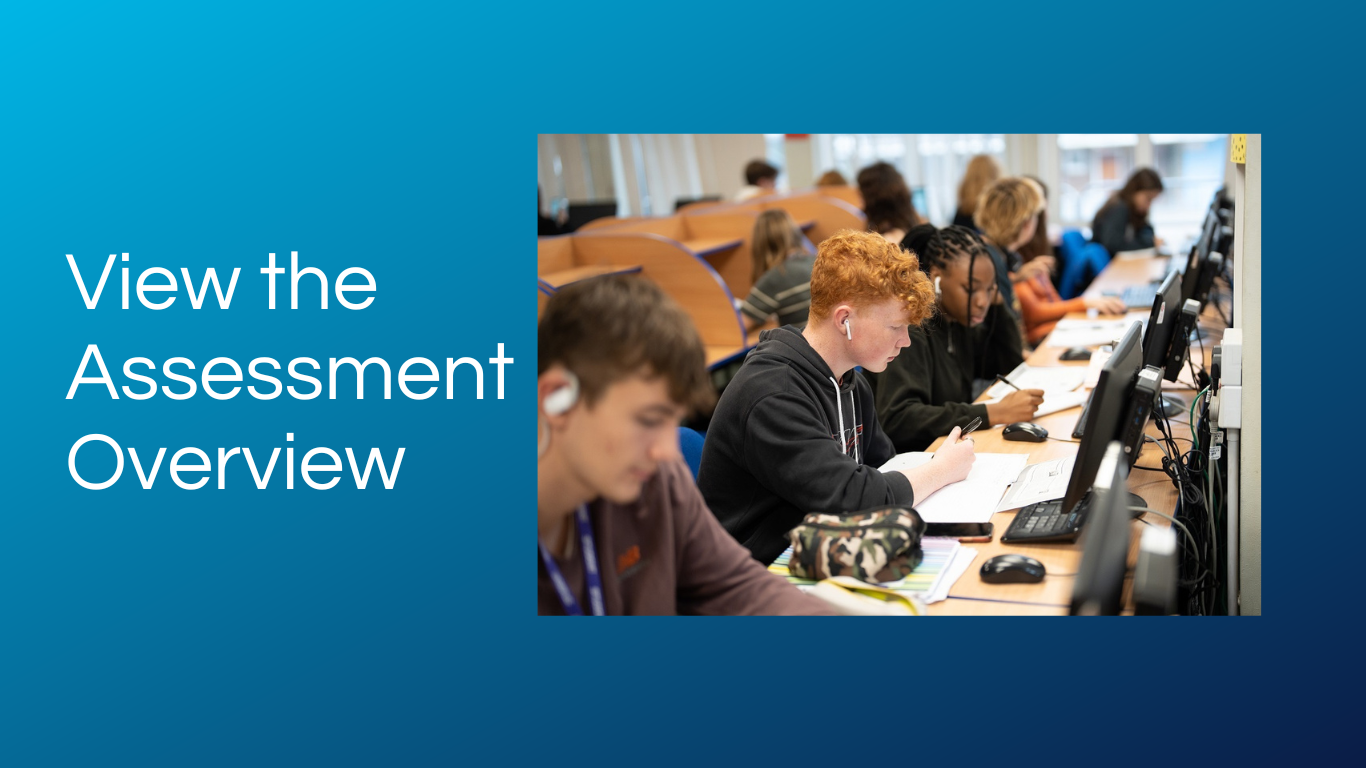Business Studies Key Stage 5
Vision
All students will develop a genuine interest in Business and appreciate the contribution of Business to the understanding of the wider Economic, Business and social environment.
Curriculum Overview
Sequencing, Setting and Support
Sequencing of the business curriculum is focused on mastering core knowledge. It is necessary to plan for retrieval practise of critical knowledge to embed core knowledge to support learning of complex concepts.
Students can learn new ideas by linking them to existing (prior) knowledge and skills and organising this knowledge into increasingly complex models. Therefore, sequencing is essential to fully support learning.
We recognise the varying levels of ability within the classroom and adapt teaching methods accordingly. Using a combination of strategies such as graduated tasks, varied resources, and flexible grouping to accommodate different learning styles and abilities. Staff provide additional support and challenge as needed, ensuring that each student is appropriately challenged and engaged.
We break down complex concepts into smaller, manageable steps to support students with different abilities. Provide clear instructions, models, and examples to help them build a strong foundation before progressing to more advanced topics. Gradually, they remove scaffolding as students gain confidence and competence.
We offer opportunities for extension and enrichment for high-ability students. We provide additional resources, challenges, or independent research projects to stimulate their curiosity and foster deeper learning.
We try to foster a supportive and inclusive classroom culture where students feel comfortable asking questions, seeking help, and taking risks. We encourage peer collaboration, mutual respect, and celebration of diverse abilities and achievements.
We provide one-on-one support as needed through tutorials, office hours, or additional resources. We offer guidance and mentoring to students who require extra assistance, and work closely with support staff or learning specialists to ensure all students receive the necessary support.
We regularly assess student progress through a variety of formative and summative assessments. We use a combination of quizzes, presentations, projects, and individual work to gather evidence of learning. We provide timely and constructive feedback to guide students towards improvement and achievement.
We use a range of instructional strategies to cater to different learning preferences; Incorporate visual aids, real-world examples, case studies, discussions, group work, and hands-on activities to engage students with diverse abilities and learning styles. We try to offer multiple pathways for understanding and demonstrating knowledge, such as presentations, written assignments, or ongoing research projects and Business planning activities.
Alive Themes in Business Studies
Assessment in Business Studies
Homework and how Parents/Carers Support Learning
All homework is set on Bromcom which is an app and website available to students and parents/carers. Further information is available on our Bromcom parents and carers support page.
These are the principles which underpin our homework.

Homework is set regularly using Bromcom in accordance with the homework timetable and policy. The following is an outline of how Business aims to use homework in line with SMRT principles for homework tasks.
Review and Reflect
1. Reinforcement of Classroom Learning:
- Complete practice problems or case studies materials related to concepts taught in class. - Summarise and reflect on the key theories and principles discussed in lessons. Reflect on teacher feedback and action the feedback for similar tasks or corrections.
2. Independent Practice and Skill Development:
- Creating a presentation to apply and enhance communication and presentation skills, which links taught content to ALIVE skills: I am Creative, I can Research, I can communicate.
- Practicing financial analysis by working on exercises that involve interpreting and analysing financial statements, and information related to financial performance.
3. Time Management and Responsibility:
- Ensure deadlines for submitting work set. Review classwork and ensure catch- up work is completed.
- Allocating time to study and review class materials in preparation for assessment (quizzes or Tests.)
Revise and Retrieve
1. Reinforcement of Classroom Learning:
- Analysing and discussing case studies that require applying content theories and strategies to solve real-world business challenges.
- Use of content Flashcards and subject Q and A Revision question cards to embed content, support recall of exam style questions and answers for each topic.
2. Independent Practice and Skill Development:
- Practising exam Questions using scaffolded paragraph structures for each question type to develop exam skills.
3. Preparation for Examinations and Assessments:
- Practicing exam-style multiple-choice and calculation questions for key concepts to prepare for a quiz or test, or summative assessments.
Read and Research
1. Independent Practice and Skill Development:
- Conducting research on industry trends, competitors, and market conditions to inform a marketing campaign proposal, or to find a gap in the market for a new product innovation.
- Exploring case studies or articles on successful leadership styles and Entrepreneurs practices to develop leadership skills, as well as creativity and innovation.
2. Application of Knowledge to Real-World Situations:
- Analysing real-life business cases, such as corporate mergers or ethical dilemmas, to understand the complexities of decision-making, and building a bank of real-life exemplars to explore ideas around topics covered in class. This builds knowledge around application of concepts for exam style questions.
- Research based project work: Creating a business plan for a startup idea, incorporating concepts from entrepreneurship and innovation topics.
- Analysing market trends and consumer behaviour to propose marketing strategies for a specific product or service.
3. Feedback and Self-Assessment:
- Receiving feedback from teachers on a business plan draft and using it to revise and improve the plan.
- Self-assessing financial modelling skills by comparing students’ own analysis with teacher examples and model answers and reflecting on areas for improvement.
4. Reviewing academic videos recommended by class teacher to consolidate concepts learned in class, or ready to learn new topics in a subsequent lesson (Flipped learning).
How Parents can Support Homework Tasks
- Establish a homework routine – a consistent time and place for homework to be done to create a regular routine. Check in
- Ensure students have access to appropriate resources. Tasks and resources will be included in the homework on Bromcom. The school will ensure they have writing materials to complete tasks.
- I am Organised: Encourage students to use to do lists, a planner or calendar to record deadlines that is visible and an easy reference for students and parents.
- Break down tasks into manageable chunks to enable work to be more manageable.
- Be available for guidance – parents can access suitable resources through Bromcom homework task pages to support this.




